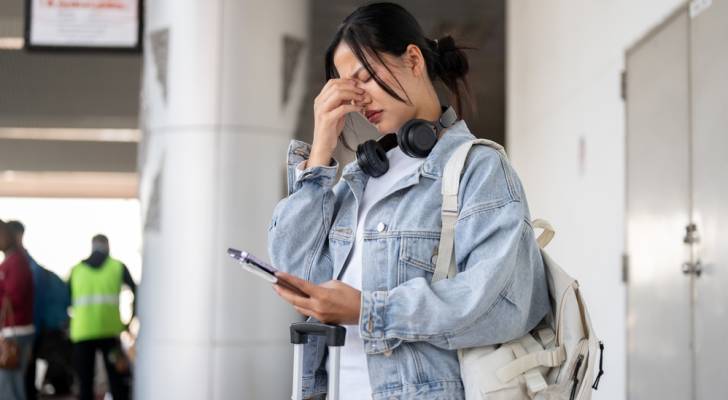
Fraud and scams are not longer just a domestic problem. According to the Canadian Anti-Fraud Centre, Canadians reported 108,878 fraud incidents in 2024, with total losses exceeding $638 million — the highest on record.
Don’t Miss
- Want to retire with an extra $1.3M? See how Dave Ramsey’s viral 7-step plan helps millions kill debt and build wealth — and how you can too
- The Canadian economy shrank in Q2 2025 — protect your wallet with these 6 essential money moves (most of which you can complete in just minutes)
- Boomers are out of luck: Robert Kiyosaki warns that the ‘biggest crash in history is coming’ — here’s his strategy to get rich before things get worse
Against that backdrop, Global Affairs Canada (GAC) has issued new guidance for travellers, urging Canadians to take basic precautions with their cash, cards, and online bookings when travelling abroad.
“Whether it’s a big backpacking trip or a quick vacation, a little money smarts can go a long way in keeping your cash and cards safe while you’re away from home,” GAC said in a press release.
Be on the lookout before you leave
GAC warns that scams often begin before you even board your flight.
For example, online listings for cut-price accommodations or tours can be a red flag. The agency advises travellers to stick to well-known booking sites, always verify contact information and avoid wiring or e-transferring money to people they don’t know. In other words, if it seems too good to be true, it probably is.
Scam awareness has become an essential part of financial preparation. Canadians lost $310 million to investment scams and $58 million to romance scams last year alone, according to the Anti-Fraud Centre. While not all of these occur abroad, travel-related fraud often overlaps with these categories — from fake rental listings to cloned payment websites and beyond.
For more information, GAC directs travellers to its Overseas Fraud page, which explains how to identify and report fraudulent activity targeting Canadians abroad.
Read more: Are you drowning in debt? Here are 3 simple strategies to help crush your balance to $0 in no time
Carry wisely: diversify your payment options
GAC also suggests that travellers try to avoid relying on a single form of payment when traveling abroad.
Depending on the destination, credit cards may be widely accepted, or barely used at all. GAC recommends carrying both a credit card and some local currency, and storing extra cash securely in a hotel safe, rather than on your person.
Before travelling, you can check Canada’s Travel Advice and Advisories website page for your destination. These pages provide information on currency, ATM access and whether card fraud is a known issue locally.
At ATMs, try to only use machines that are located in well-lit, high-traffic areas such as bank branches or hotel lobbies. Cover your PIN when entering it and keep your card within sight when making purchases. It can also help to regularly check your account statements while abroad, as well as soon after you return home, to catch any unauthorized transactions early.
When things go wrong: where to turn for help
If your wallet or cards go missing, or if you suspect fraud in any way, GAC recommends contacting your bank immediately to freeze accounts. You can also reach out to the nearest Canadian embassy or consulate, which can help replace travel documents, arrange emergency funds or direct you to the relevant local authorities.
It can also be wise to let your bank and/or credit card provider know about your travel dates in advance, to prevent your account from being mistakenly frozen for “unusual activity.” GAC’s Financial Assistance page and the Canadian Consular Services Charter both outline how Canadians can get help while traveling abroad.
Ultimately, protecting your money while travelling comes down to planning and awareness. As GAC notes, “With a bit of foresight, you’ll keep your finances secure — and enjoy your trip with peace of mind.”
What To Read Next
- Here are 5 expenses that Canadians (almost) always overpay for — and very quickly regret. How many are hurting you?
- Ray Dalio just raised a red flag for Americans who ‘care’ about their money — here’s why Canadians should limit their exposure to U.S. investments
- I’m almost 50 and don’t have enough retirement savings. What should I do? Don’t panic. Here are 6 solid ways you can catch up
- Here are the top 7 habits of ‘quietly wealthy’ Canadians. How many do you follow?
This article originally appeared on Money.ca under the title: Canadians are losing record amounts to fraud — and that risk follows them overseas
This article provides information only and should not be construed as advice. It is provided without warranty of any kind.